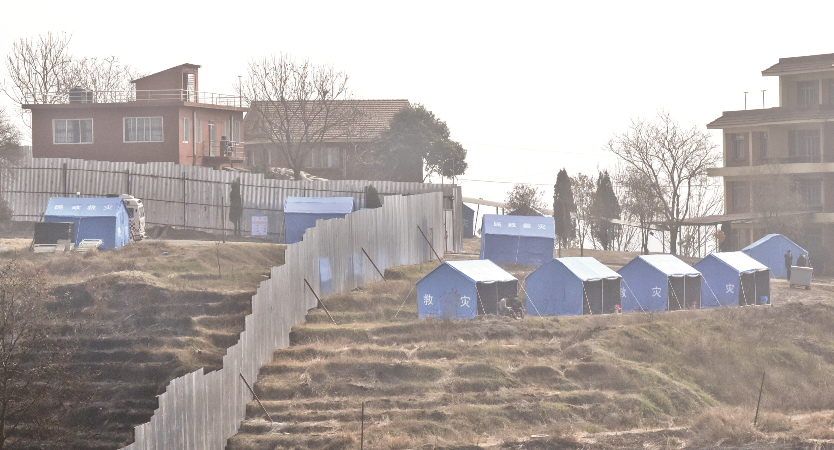Toll On Mental Health
Sampada Anuranjanee Khatiwada
Nepal has observed a soaring rate of suicide cases since the lockdown was imposed by the government to curb COVID-19. The suicide rate of the country has increased by 20 per cent and as many as 875 cases were registered amid lockdown, Nepal Police has revealed. It means, on a rough calculation, more than 10 people are committing suicide every day.
While the World Health Organisation (WHO) has time and again been contemplating about how our mental health would be affected amid the pandemic and beyond, the increasing rates of suicide cases prove that the pandemic is here to take lives of many, be it directly through virus infection or through the socio-economic and mental limpact it has on many lives.
Helplessness, hopelessness and worthlessness are the three major reasons due to which people give up on their lives, the mental health experts say and it is quite evident by now that the pandemic followed by lockdown has hit people's lives hard, making them mentally vulnerable too. Everyone being locked inside their homes or being stranded in lands far away from their homes might as well give rise to existential crisis.
Lucky are those who are getting to have at least two meals a day. But there are a lot of people who have been living in hardships and hunger; this ultimately gives rise to mental health problems making one feel helpless, which might end up in suicide.
Likewise, people, regardless the sector they're in, are witnessing a massive downfall in their businesses due to the months long lockdown. It is definitely going be a battle uphill to overcome the loss in businesses invited by the pandemic. Many people may be indebted or are having a hard time in managing their lives on economic stance. The deprivation from money and indebtedness could also inflict suicidal thoughts.
Furthermore, the pandemic has made people question the worth of their lives. Many are living alone far from their homes and away from their families. Living alone for over 70 days is quite a task. The mental health experts say that risk of mental disorders is higher for those who live alone.
Especially during the pandemic, where we are anyway concerned and fearful about virus infection, living alone with no one around to receive care from could lead to feeling desperaate. Loneliness, anxiety, depression, fear of the virus, boredom and empty mind could inflict existential crisis in one's life which thereby induces suicide or suicidal thoughts.
As the COVID-19 pandemic is here to affect all lives on every aspect, it is high time for people to understand that they're not alone in this. Everyone's business is going down; everyone's financial earnings are receding; everyone is facing difficulties in living alone and surviving the lockdown. The feeling of not being alone in the perils of the pandemic might avoid existential crisis in people. Also, the government, organisations and even individuals must take upon the responsibility of preventing mental health problems.
The government, at the moment has been prioritising protection of human lives from COVID-19 above all. But the government must understand that the pandemic has indirectly been claiming lives of many through mental health problems.
Psychological therapy, consultation services, helpline numbers and assurance that living life wouldn’t be hard post pandemic must be provided by the government and other organisations in order to prevent suicide cases. Moreover, we on our individual levels must try to connect, talk and provide counseling to our friends, family members, or anyone we know who are going through existential crisis in order to prevent grievous incidents.
Recent News

Do not make expressions casting dout on election: EC
14 Apr, 2022
CM Bhatta says may New Year 2079 BS inspire positive thinking
14 Apr, 2022
Three new cases, 44 recoveries in 24 hours
14 Apr, 2022
689 climbers of 84 teams so far acquire permits for climbing various peaks this spring season
14 Apr, 2022
How the rising cost of living crisis is impacting Nepal
14 Apr, 2022
US military confirms an interstellar meteor collided with Earth
14 Apr, 2022
Valneva Covid vaccine approved for use in UK
14 Apr, 2022
Chair Prachanda highlights need of unity among Maoist, Communist forces
14 Apr, 2022
Ranbir Kapoor and Alia Bhatt: Bollywood toasts star couple on wedding
14 Apr, 2022
President Bhandari confers decorations (Photo Feature)
14 Apr, 2022











